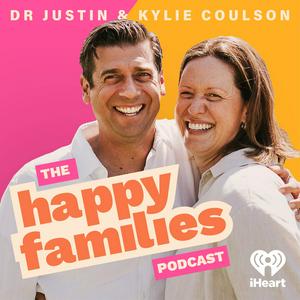Consent isn’t just a conversation for teens—it starts from birth and evolves with every stage of childhood. In this important episode, Justin and Kylie Coulson unpack how to teach kids about consent from zero to adolescence. From tickle fights to tricky teen moments, this is your guide to raising respectful, confident kids who know their rights, understand boundaries, and feel empowered to speak up. KEY POINTS: Consent starts early: young children can learn body autonomy through everyday routines like bath time and tickling. Children should be taught they have a voice and their boundaries matter—even with trusted adults and relatives. From ages 6–12, focus on body language, verbal/non-verbal cues, and respect in friendships. For teenagers, conversations shift to romantic relationships, digital safety, and clear, enthusiastic consent. Consent is not a one-off talk—it’s an ongoing conversation based on empathy, safety, and empowerment. QUOTE OF THE EPISODE:“If the person you’re with won’t be excited about what happened tomorrow, that’s not consent.” RESOURCES MENTIONED: Consent Can’t Wait – National campaign with age-appropriate, inclusive resources. Happy Families website – happyfamilies.com.au ACTION STEPS FOR PARENTS: Start early: Give your child opportunities to express preferences about hugs, play, and physical affection. Use everyday language to explain consent during routines like dressing or bathing. Teach kids to read body language and respect “no”—even when it's non-verbal. Give your teens the tools to navigate peer pressure, digital safety, and intimacy with clarity and confidence. Remind your children that they owe no one access to their body—ever. Have open, ongoing conversations about boundaries, empathy, and healthy relationships—at every age. RELATED LINKS: #217 The Age of Consent with Rebecca Sparrow #226 More Than Consent Education with Melinda Tankard Reist Sex, Consent & Staying Safe [Webinar] #1071 - Body Boundaries With Jayneen Sanders Find us on Facebook Subscribe to the Happy Families newsletter Leave a voice memo here or email your questions/comments to
[email protected] omnystudio.com/listener for privacy information.

